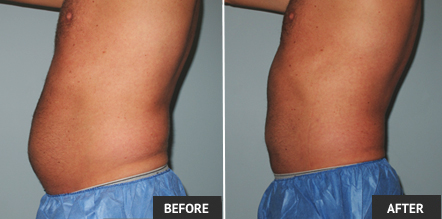As any surgical procedure, liposuction also possess the risk of the patient bleeding or reacting to anaesthesia. There can be a possibility of surgical complication as well. Irregularities in the skin- Bumpy, wavy or uneven skin as chances are that the surgical procedure removes fat unevenly. This damage could be permanent.
Finally, water keeps you moisturized when you're exercising or exercising which helps you go lengthier. Attempt to incorporate much more drinking water into your day time! Keeping an eating log is a straightforward and effective reaction you can have to support your non surgical liposuction risks program. Should you stick to the suggestions from this post, you will start to realize your non surgical liposuction risks objectives. You are in complete manage of your own fat. Take control of your weight as well as your life.
You may experience “paresthesias,” which is an altered sensation at the site of the liposuction. This may either be in the form of an increased sensitivity (pain) in the area, or the loss of any feeling (numbness) in the area. This sensation is permanent in very rare cases. However, in almost all patients it goes away within the first two to four months after surgery. Massaging the area of liposuction helps increase circulation, and facilitate return of normal skin sensation.
While this can be a common problem with Ultrasound Assisted Liposuction (UAL), it rarely occurs with standard Tumescent Liposuction. Your surgeon can alleviate these by draining them with a small needle in an office procedure. Infections. Infections may happen after any surgery and may rarely occur after liposuction. Because we routinely prescribe an antibiotic to all patients undergoing liposuction we have never yet seen a patient who has developed post-operative infection after liposuction.
Serious complications, such as burns from ultrasonic liposuction, organ damage, perforation of the abdominal walls, fluid imbalance, pulmonary embolism, or Lidocaine poisoning are extremely rare. When properly conducted, liposuction surgery can be a fairly safe procedure, especially if the patient follows all instruction from the doctor and spends time recuperating after the surgery. Most patients are encouraged to walk and be active after the surgery also. The patient should investigate plastic surgeons carefully to ensure the doctor is skilled and experienced. Also, a patient should be in the best health possible prior to the surgery.
If you are a smoker, you should quit, at least temporarily, since smoking can interfere with the healing process. Some medications can cause increased bleeding, such as aspirin, so your physician may advise you to stop taking them prior to the operation. Because these possible complications can be devastating to your health, it is imperative that you be as honest and accurate as you can when discussing your medical history with your physician. After the operation, you will have pain, swelling, and bruising, although these complaints are to be expected following any major surgical procedure.
Once your cosmetic surgeon knows your history, you'll receive your doctor's advice about what to do before surgery and after surgery. Your plastic surgeon has trained for years and knows all the risks and dangers of liposuction surgeries, especially if your surgeon is a board certified plastic surgeon. Because your surgeon knows the dangers of liposuction, measures are already in place to keep you safe and protected from liposuction complications.
Excessive blood loss may also occur in high-volume liposuction. Emboli (singular: embolus) are bits of clotted blood or other tissue that enter the bloodstream and can cause a blockage. A pulmonary thromboembolus occurs when a blood clot travels through the bloodstream to lodge in the lungs and can be very serious.

